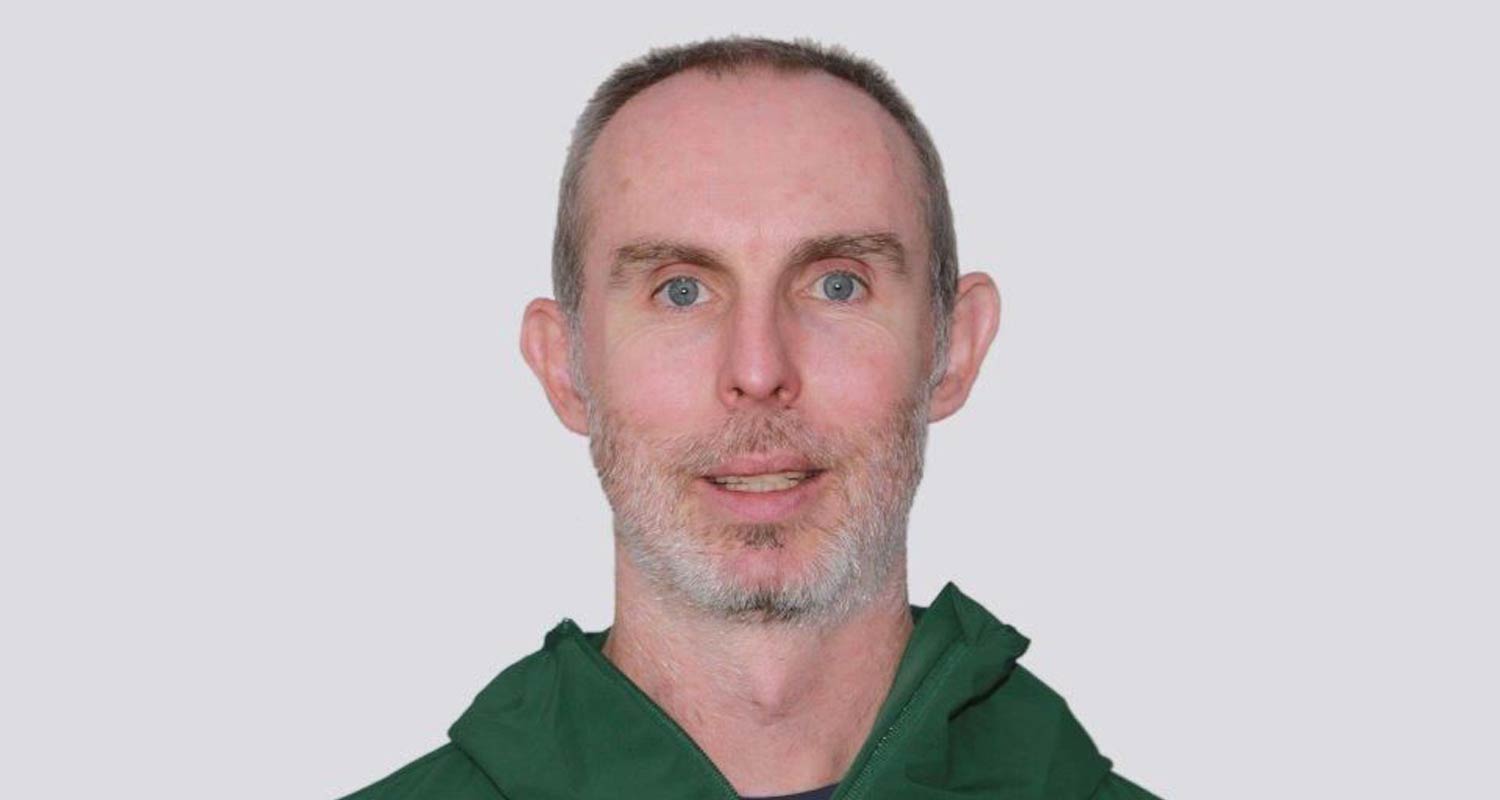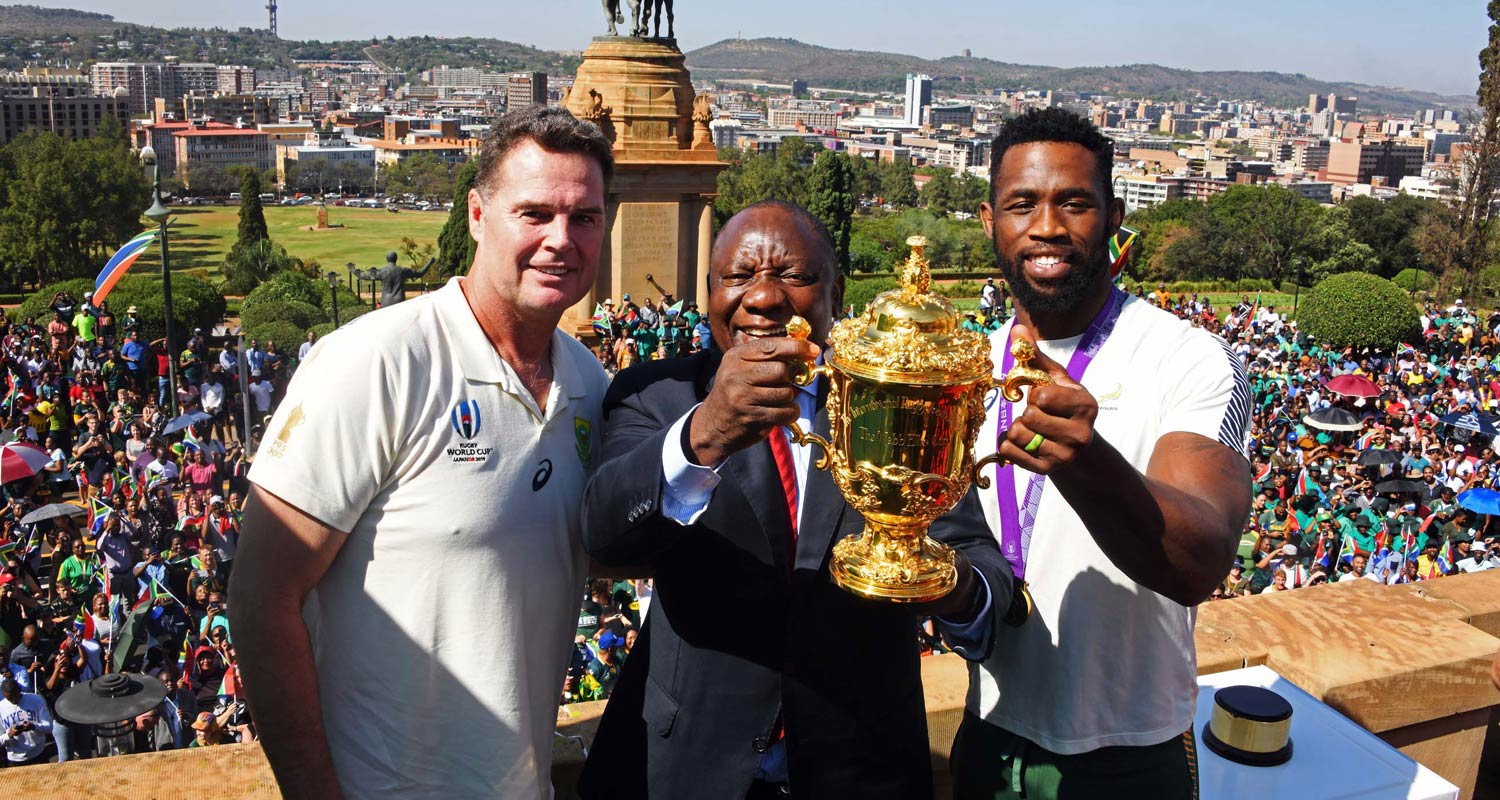 Our boys in green and gold play their hearts out each time they get the opportunity to wear the Springbok jersey and carry the hopes of the nation on their shoulders. But the magic that happens on the field tells only a partial story of the work that goes into creating a championship-winning side.
Our boys in green and gold play their hearts out each time they get the opportunity to wear the Springbok jersey and carry the hopes of the nation on their shoulders. But the magic that happens on the field tells only a partial story of the work that goes into creating a championship-winning side.
There is an entire technological ecosystem that contributes to how the Boks are able to compete at world-class level with winning consistency. TechCentral spoke to South African Rubgy Union (Saru) technical support manager Willie Maree to better understand how technology drives the Springbok team.
“Technology plays an important role as it allows us to measure and monitor performance. For example, we may have been quite dominant in the last game, but we might not have achieved our internal objectives; we couldn’t measure that without the technological tools at our disposal,” Maree said. “Secondly, from a conditioning point of view, it helps us to intervene in the coming weeks. Are there players we need to get off their feet and do others maybe need a top-up?”
The last game Maree refers to is the Springbok’s 35-7 victory in the World Cup warm-up match against New Zealand at Twickenham on 25 August. Since some players only played half of that game – the “top-up” Maree refers to is the additional exertion that those players may need to be taken through in training to ensure that they are conditioned to full match fitness. Topping up also prevents the likelihood that a player will suffer an injury in their next outing.
From Maree’s description, Saru’s technological ecosystem can be delineated into two distinct processes: data collection and data-driven decision making.
The main tool used for data collection is a GPS tracker, called a GPS pod, which each player has inserted into a sleeve in the back of their rugby jersey. The sleeve is designed so that the pod sits tightly inside it to minimise movement. “The one thing you don’t want with GPS is unwanted movement because it is going to affect the readings,” Maree said. The pod is cleverly positioned between the shoulder blades to minimise the chances of collision during rucks, mauls and scrums.
Boks’ tracking pods
The Springboks use tracking pods made by STATSports, an Irish company that supplies analysis software along with the tracking hardware. Pods are used in games as well as practice because, as the old saying goes, “you practise how you play”. In some practice sessions, Maree added, pods are supplemented with heart-rate belts – although these are not used often, they nonetheless serve as an important data capture tool when employed.
“The heart-rate monitors are important because they help us see how much exertion a player goes through at different stages of the game,” Maree said.
In addition to automated data capturing through the use of devices, there is also a team dedicated to the collection of in-game data including tackles, ball carries, passes and kicks, which is then used for technical analysis. The data is fed to the technical team in real time.
Read: World Rugby debuts free streaming platform ahead of RWC
“We developed the system a few years ago with our partner, Mobii System – a local company. Our latency, at 0.25s from live, makes us the quickest system in the world at this stage,” Maree said. The very same data is used for post-game video analysis using Hudl Sportscode.
Other data sources include daily player self-reports through subjective well-being assessments and inputs from other technical teams that record information regarding medical and dietary records.

The true value of the union’s various data collection efforts is realised in how the different metrics available for analysis are combined by different technical teams to add value to the outcomes of decisions that affect the game.
“From the GPS pod together with STATSports, there are probably over 200 or even 300 metrics that you can look at. But it is about narrowing down what is going to make a difference. We have a bespoke metric called high-metabolic load distance, which we call our ‘rugby metric’. With running, distance is distance, it is then how quickly you get from one position to the next that makes a difference in the game,” Maree said.
“We use bespoke systems that speak to performance, both technical and tactical, at individual and group and team level. We also use athlete management systems so that each player has a profile and we are able to make conjectures like so and so is undertraining while so and so may be overtraining.”
The Springboks use Kitman Labs for athlete management. Player profiles are used extensively to monitor player progress and are a key component to some important decisions, including squad selection. Maree explained that the emotional reactions that fans might have to certain decision, like the one that a certain TechCentral journalist – who shall remain unnamed – might have had to Handré Pollard being excluded from the World Cup squad, are often made with additional data at hand that the fan may not have at his disposal.
We use the same technology on the under-18 player as we do on the Springboks. That way we can compare that player not just to his optimal self
“If for whatever reason a player is not ready – it might be mentally, performance-wise or medically – there might be something that the fan out there doesn’t know. Science will determine if a player’s is ready or not, but as with any organisation, the coach’s gut feel and experience also play a role,” Maree said.
Profiles are also used compare players to their own peak, which helps both the players and technical teams make decisions about how to get a player into peak condition. Aside from self-comparison, each player in each position is compared to a profile which defines the unions standard for that position, with individual progress measured against that standard.
“Our flagship team is the Springboks, but when a player comes into the system, we catch them at under-18. We use the same technology on the under-18 player as we do on the Springboks. That way we can compare that player not just to his optimal self, but to his comparable number in the first team so that they know how they compare to their first-team equivalent,” Maree said.
Technology is critical to ensuring that decisions are beneficial to winning games while maximising a modest budget when compared to those of counterparts such as the English or the French, he added. “It is about finding a balance between cost and the tech that is going to give us an edge. There are a lot of tools out there – a chip in the ball, for example – but is that going to contribute to us winning or losing? If the answer is no, then why use it?”

The younger sides like the under-18s or under-2os not only have access to the same tech as the first side but also serve as testing grounds for new technology, helping reduce the risk and expense at the highest level of the game.
“The last thing you want to do is chop and change metrics week in and week out, because then there is no trend, it does not tell you a story. Not all tech is pushed straight into the Boks; we’ll do some low-level testing to validate what is real from what is a fad,” Maree added.
When TechCentral asked about the impact that artificial intelligence on rugby, Maree said that although Saru is aware of the benefits that more intelligent systems will bring, the same prudent approach it has applied to technological adoption will continue to be used in future.
“For a system to be intelligent, you need massive data sets, so the more data we can capture, the more we can feed these types of systems (AI) so they can start predicting. And it’s not just predicting an injury, its predicting potential outcomes. For example, if we play New Zealand and we get possession in a particular field position, what is the probability of scoring? This is where everything is going to go,” Maree said. – © 2023 NewsCentral Media

